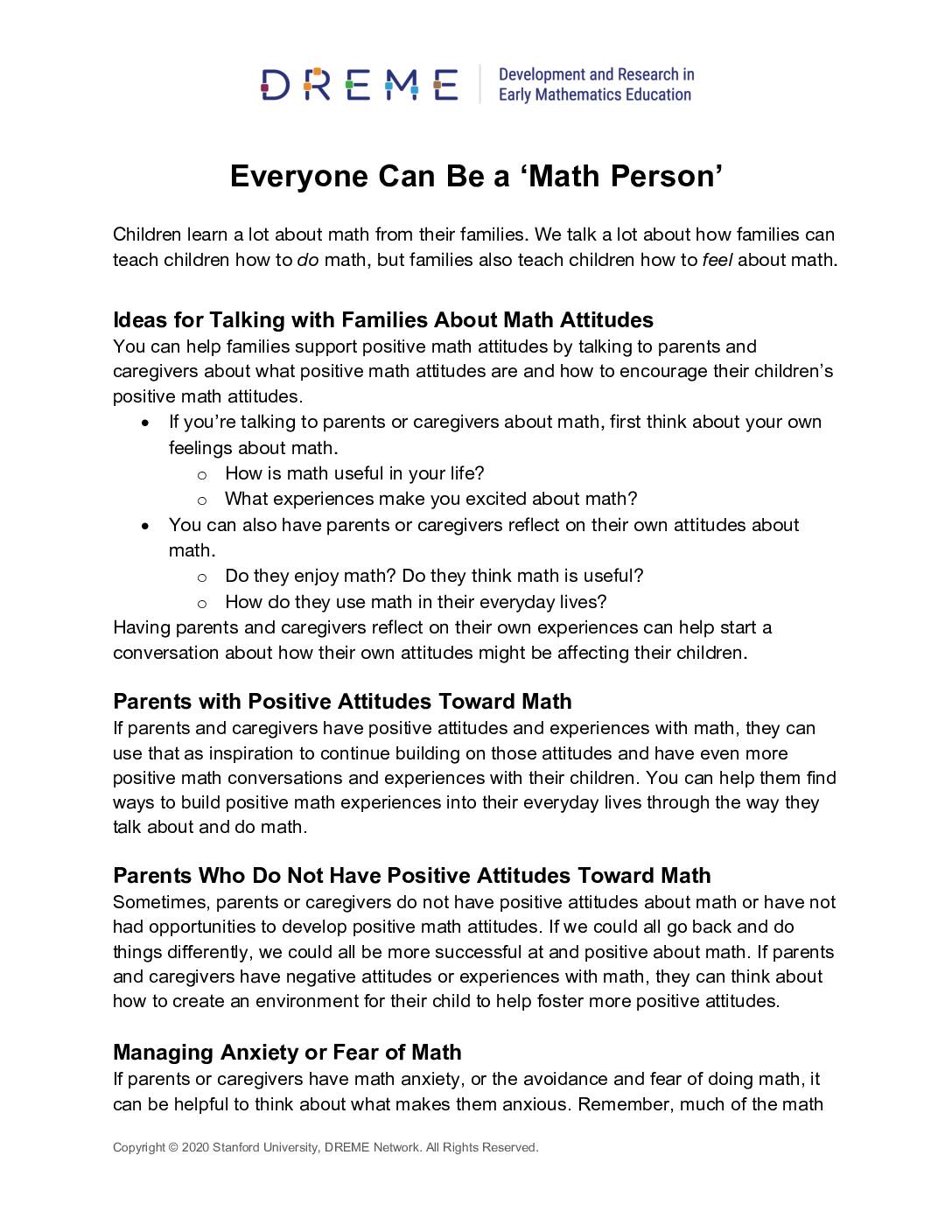Children learn a lot about math from their families. We talk a lot about how families can teach children how to do math, but families also teach children how to feel about math.
Ideas for Talking with Families About Math Attitudes
You can help families support positive math attitudes by talking to parents and caregivers about what positive math attitudes are and how to encourage their children’s positive math attitudes.
- If you’re talking to parents or caregivers about math, first think about your own feelings about math.
- How is math useful in your life?
- What experiences make you excited about math?
- You can also have parents or caregivers reflect on their own attitudes about math.
- Do they enjoy math? Do they think math is useful?
- How do they use math in their everyday lives?
Having parents and caregivers reflect on their own experiences can help start a conversation about how their own attitudes might be affecting their children.
Parents with Positive Attitudes Toward Math
If parents and caregivers have positive attitudes and experiences with math, they can use that as inspiration to continue building on those attitudes and have even more positive math conversations and experiences with their children. You can help them find ways to build positive math experiences into their everyday lives through the way they talk about and do math.
Parents Who Do Not Have Positive Attitudes Toward Math
Sometimes, parents or caregivers do not have positive attitudes about math or have not had opportunities to develop positive math attitudes. If we could all go back and do things differently, we could all be more successful at and positive about math. If parents and caregivers have negative attitudes or experiences with math, they can think about how to create an environment for their child to help foster more positive attitudes.
Managing Anxiety or Fear of Math
If parents or caregivers have math anxiety, or the avoidance and fear of doing math, it can be helpful to think about what makes them anxious. Remember, much of the math young children are doing are concepts parents learned when they were young, too! It can also be helpful to interpret feelings as excitement instead of anxiety. Being positive about math, even if it’s sometimes difficult or makes parents uncomfortable, is important for children’s learning.
